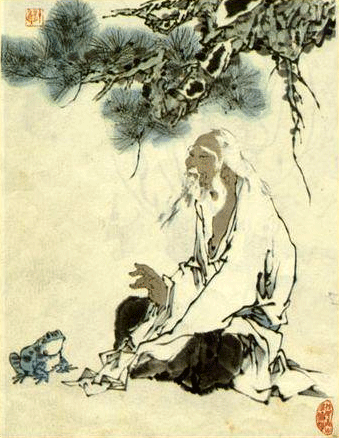
I have done a somewhat sloppy job explaining myself in the previous article on the fall of Numenor and “the encircling of Arda.” As many of you have pointed out, I have not demonstrated why the ring-shaped Arda (after it was made round) spiritually corresponds to grasping for immortality by the Numenoreans.
As I pondered about it, a new mythological connection emerged in my mind, which, I believe, will make the connection more succinct. In the famous movie Groundhog Day, Phil, the protagonist, finds himself stuck in one day, February 2, repeatedly.
Here’s an interesting summary of the movie I found on IMDb:
A weather man is reluctantly sent to cover a story about a weather forecasting “rat” (as he calls it). This is his fourth year on the story, and he makes no effort to hide his frustration. On awaking the ‘following’ day, he discovers that it’s Groundhog Day again, and again, and again. First he uses this to his advantage, then comes the realisation that he is doomed to spend the rest of eternity in the same place, seeing the same people do the same thing every day.—Rob Hartill
What caught my attention here is the reference to a “rat” and the “doom.” For a good part of the movie, Phil’s quest is to take advantage of his “immortality,” but he soon realizes that he is feeling like “butter spread over too much bread.” (Bilbo Baggin’s feelings after possessing the Ring for a long time).
Phil finds himself stuck in the rat race of life, repeating never-ending circles. As this circling continues, he slowly realizes that his newly acquired “immortality” does not deliver. So, he’s grasping for more and more “advantages,” believing that he might finally achieve happiness in the rat race he’s caught in.
But the more he grasps, the less it works. By the end of the movie, he realizes that he must let go of Self to survive his “doom.” He lets go – relinquishes control and drops the Ring of Power, so to say. He starts living for others because nothing else satisfies him. He’s not striving to break out of his prison anymore. And he doesn’t feel doomed anymore.
To his surprise, one day the endless circling ends. The vicious cycle is broken. Using Tolkien’s words, by accepting the doom (or gift) of Men, he has freed himself from the circles of the world. And this is exactly what the great mariners of men discovered after the fall of Numenor and the encircling of Arda.
What caused the downfall of Numenor?
Numenor craved immortality to such a degree that they tried to take it by force. This resulted in a curse – the drowning of Numenor and the encircling of Arda. Spiritually, this curse corresponds to the craving of their hearts. The wanted immortality at all costs but found themselves stuck in an endless circle of death.
“Thus it was that great mariners among them would still search the empty seas, hoping to come upon the Isle of Meneltarma (Valinor), and there to see a vision of things that were. But they found it not. And those that sailed far came only to the new lands, and found them like to the old lands, and subject to death. And those that sailed furthest set but a girdle about the Earth and returned weary at last to the place of their beginning; and they said: ‘All roads are now bent.’ Thus in after days, what by the voyages of ships, what by lore and star-craft, the kings of Men knew that the world was indeed made round.”
This roundness mirrors the shape of the Ring of Power. When you seek immortality through some external means (the Ring as the ultimate technology), you are trapped in an endless circle. You perpetuate what you want to escape – weariness and death. You feel weary – like butter spread over too much bread. You are in a Groundhog Day.
Continue reading “The Connection Between Groundhog Day and the Fall of Numenor”








